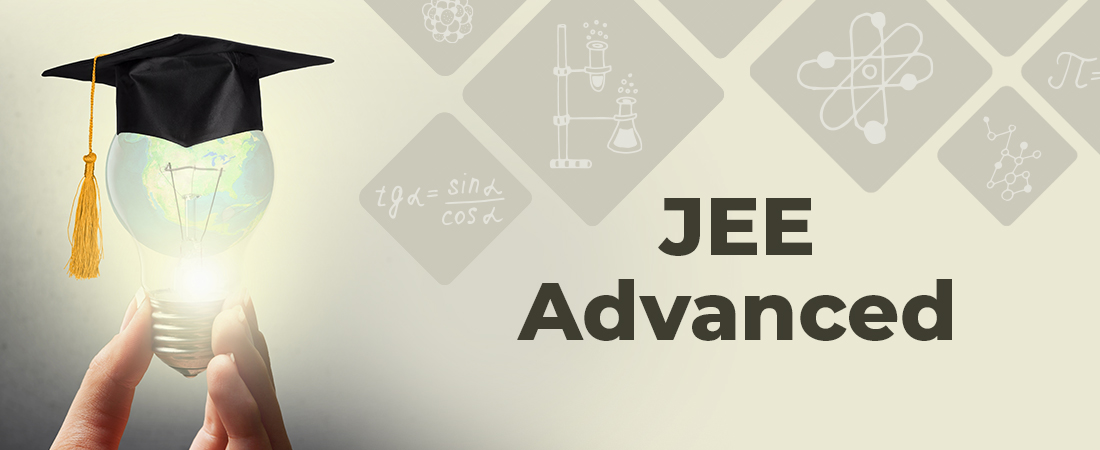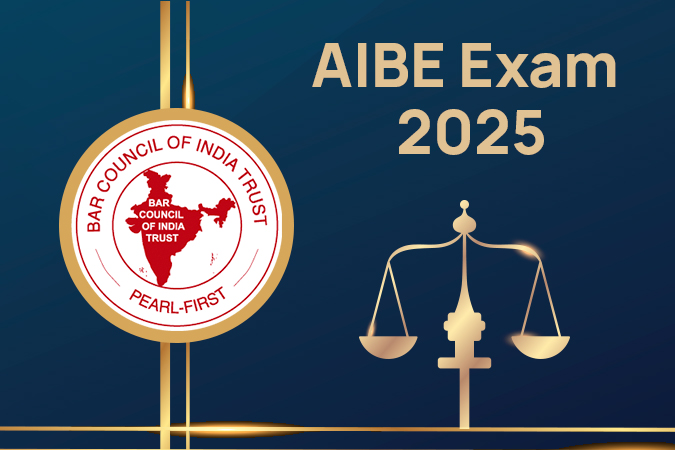
JEE is a national-level engineering entrance examination administered by the National Testing Agency (NTA), previously managed by the Central Board of Secondary Education (CBSE). It serves as the gateway for admission to undergraduate programs such as BE, B.Tech, and B.Arch at various prestigious institutions including NITs, IIITs, centrally funded technical institutions, state-funded institutions, and several other participating institutions across India.
The second level of the examination is reserved for admission to undergraduate programs at Indian Institutes of Technology (IITs) and is solely open to qualified applicants who have passed the JEE Main cutoff.
How to Register Online –
Register for JEE Advanced 2024 – Register Here
Document Required for Registration :
| Documents | Format | Size |
|---|---|---|
| Photograph | JPG/JPEG | 10 KB- 200 KB |
| Signature | JPG/JPEG | 4 KB- 30 KB |
| Permanent and Present Address Proof | 50 KB- 300 KB | |
| Category Certificate | 50 KB- 300 KB | |
| PwD Certificate | 50 KB- 300 KB |
Important Dates
| Activity | Day, Date and Time (IST) |
|---|---|
| Online Registration for JEE (Advanced) 2024 | Saturday, April 27, 2024 ( to Tuesday, May 07, 2024 ( |
| Last date for fee payment of registered candidates | Friday, May 10, 2024 (17:00 IST) |
| Admit Card available for downloading | Friday, May 17, 2024 ( 10:00 IST) to Sunday, May 26, 2024 ( 14:30 IST) |
| Choosing of scribe by PwD candidates / candidates with less than 40% disability and having difficulty in writing | Saturday, May 25, 2024 |
| JEE (Advanced) 2024 Examination |
Sunday, May 26, 2024 Paper 1: 09:00-12:00 IST Paper 2: 14:30-17:30 IST |
| Copy of candidate responses to be available on the JEE (Advanced) 2024 website | Friday, May 31, 2024 (17:00 IST) |
| Online display of provisional answer keys | Sunday, June 02, 2024 (10:00 IST) |
| Feedback and comments on provisional answer keys |
Sunday, June 02, 2024 (10:00 IST) to Monday, June 03, 2024 (17:00 IST) |
| Online declaration of final answer key and Results of JEE (Advanced) 2024 | Sunday, June 09, 2024 (10:00 IST) |
JEE Advanced 2024 Eligibility Criteria
All the candidates must simultaneously fulfil each one of the following five criteria to appear for JEE (Advanced) 2024.
How to Register Online –
Register for JEE Advanced 2024 – Register Here
Performance in JEE (Main) 2024
Candidates eligible for consideration must rank among the top 2,50,000 successful candidates, encompassing all categories, in the B.E./B.Tech. paper of JEE (Main) 2024. The shortlisting percentages for different categories are as follows: 10% for GEN-EWS, 27% for OBC-NCL, 15% for SC, 7.5% for ST, with the remaining 40.5% being OPEN for all.
Within each category, 5% horizontal reservation is allocated for PwD candidates. The selection of the top 2,50,000 candidates across various categories is determined by their performance in the B.E./B.Tech. paper of JEE (Main) 2024, following the order detailed in the table below.
Category-wise distribution of top 2,50,000* candidates (Criterion 1)
| Sl No. | Category | Number of "Top" candidates | |
|---|---|---|---|
| 1 | OPEN | 96187 | 101250 |
| 2 | OPEN-PwD | 5063 | |
| 3 | GEN-EWS | 23750 | 25000 |
| 4 | GEN-EWS-PwD | 1250 | |
| 5 | OBC-NCL | 64125 | 67500 |
| 6 | OBC-NCL-PwD | 3375 | |
| 7 | SC | 35625 | 37500 |
| 8 | SC-PwD | 1875 | |
| 9 | ST | 17812 | 18750 |
| 10 | ST-PwD | 938 | |
Age Limit
Candidates should have been born on or after October 1, 1999, to be eligible. SC, ST, and PwD candidates are granted a five-year age relaxation, requiring them to have a birth date on or after October 1, 1994.
Number of attempts
A candidate can attempt JEE (Advanced) a maximum of two times in two consecutive years.
Appearance in Class XII (or equivalent) examination
A candidate should have appeared for the Class XII (or equivalent) examination for the first time in either 2023 or 2024 with Physics, Chemistry, and Mathematics as compulsory subjects.
Candidates who had appeared in Class XII (or equivalent) examination for the first time in 2022 or earlier, are NOT eligible to appear in JEE (Advanced) 2024, irrespective of the combination or number of subjects attempted/offered.
Earlier admission at IITs
A candidate should NOT have been admitted to an IIT through JoSAA 2023 irrespective of whether or not the candidate continued in the program OR accepted an IIT seat by reporting “online” / at a “reporting centre” in the past. Candidates whose admission to IITs was cancelled (for whatever reason) after joining any IIT are also NOT eligible to appear for JEE (Advanced) 2024.
Candidates who have been admitted to a preparatory course in any of the IITs for the first time in 2023 can appear in JEE (Advanced) 2024.
JEE Advanced 2024 Exam Pattern:
According to the JEE Advanced 2024 paper structure, the examination will be conducted online and consist of two papers: Paper 1 and Paper 2. Each paper will have a duration of 3 hours.
The question paper format for JEE Advanced 2024 includes multiple-choice questions with single answers, questions with multiple answers, numerical value questions, and matching-type questions.
To gain a better understanding of the JEE Advanced 2024 exam pattern for papers 1 and 2, candidates can refer to the table provided below.
| Particulars | Pattern Details |
|---|---|
| Organising Institute | IIT Madras |
| Mode of Examination | Computer-Based |
| Medium of Examination | English/ Hindi |
| Number of Papers | 2 – Paper 1 & Paper 2 |
| Number of Subject Sections | 3 with further sub-sections based on question types: Physics Chemistry Mathematics |
| Time Duration of Exam | 6 hours (3 hours each) |
| Types of Question | MCQs, Numerical value-based, MSQs, Matching List, Paragraph-based Numerical Value, etc. |
Breakdown of JEE Advanced Question Types
- Multiple Choice Questions (MCQ): Questions with four options in which only ONE option is correct.
- Full marks: +3 If only the correct option is chosen.
- Zero Marks: 0 for unattempted/ unanswered questions
- Negative Marks: -1 In all other cases
- Multiple Select Questions (MSQs): Questions with four options in which ONE OR MORE THAN ONE option(s) are correct.
- Full marks: +4 only if all the correct options have been chosen.
- Partial Marks:
- +3 If all four options are correct but ONLY three correct options are chosen
- +2 If three or more options are correct but only two correct options are chosen
- +1 If two or more options are correct but only one correct option is chosen
- Unattempted Questions: 0
- Negative Marks: -2 in all other cases
- Non-negative Integer (NNI): Numerical question with non-negative integer type answer with answer upto 2 decimal places
- Full marks: +4 for the correct answer
- Unattempted Questions: 0
- Matching List-based MCQ (MLT): Match List type i.e. Match List-I to List-II. List I had 4 questions to be matched to List II which had 5 options. Also referred to as Matrix Match
- Full marks: +3 in case all options are correct
- Unattempted Questions: 0 for unattempted/ unanswered questions
- Negative Marks: -1 In all other cases
- Paragraph based Numerical Value (PNV): Match List type i.e. Match List-I to List-II. List I had 4 questions to be matched to List II which had 5 options. Also referred to as Matrix Match
- Full marks: +3 in case all options are correct,
- Unattempted Questions: 0 for unattempted/ unanswered questions
- Negative Marks: -1 In all other cases
JEE Advanced 2024 Syllabus
JEE advanced syllabus includes following–
- Physics: Mechanics, Thermal Physics, Electricity and Magnetism, Optics, Modern Physics.
- Chemistry: Physical Chemistry, Organic Chemistry, Inorganic Chemistry.
- Mathematics: Algebra, Trigonometry, Analytical Geometry, Differential Calculus, Integral Calculus, Vectors, Probability, Statistics, and more.
- Architecture Aptitude Test (AAT): Freehand drawing, Geometrical drawing, Three-dimensional perception, Imagination and aesthetic sensitivity, Architectural awareness.
Frequently Asked Questions
Which courses is the JEE Advanced score used for?
The JEE Advanced exam is a gateway for successful candidates to seek admission into Bachelor’s, Integrated Master’s or Bachelor-Master Dual Degree programs across various disciplines such as Engineering, Science, Architecture, Design and Pharmaceutics offered at the various IITs and other premium engineering institutes.
JEE Advanced qualifiers frequently pursue careers in research and development (R&D) working on cutting-edge studies in diverse fields. The exam scores help them explore research careers in national and international research organizations. The JEE Advanced score is also a possible criterion for Indian applicants to universities abroad like the University of Cambridge and the National University of Singapore.
Which courses is the JEE Advanced score used for?
The key factors that determine eligibility criteria for JEE Advanced exams are: age, number of attempts, educational qualifications, subjects opted for and IIT admission.
- Age Limit: Students should be born on or after October 1, 1998. Five years age relaxation is provided for SC/ST/PwD candidates.
- Educational Qualifications: Candidates should have passed Class XII (or equivalent) for the first time in the year 2023/2024.
- Subjects: Physics, Chemistry and Mathematics should be mandatory subjects in Class 12th.
- Number of Attempts: A candidate can attempt two times in two consecutive years.
- IIT Admission: A candidate should NOT have been admitted to an IIT.
How is the JEE Advanced Cutoff decided?
The JEE Advanced cutoff is essentially the minimum score that a candidate needs to pass the exam stage. Candidates who score equal to or above the cutoff will be able to participate in the JEE Advanced counselling process. It is a significant aspect of the JEE Advanced exam as the cutoff and the rank list are used to pick candidates who get admission into the top engineering institutes in the country like the ITTs.
The cutoff depends on several factors and may vary every year. Here are the factors determining the cutoff for JEE Advanced that determine the minimum qualifying score:
- Cutoff trends from the previous year
- Total number of candidates for JEE Advanced
- The exam’s level of difficulty
- Previous year performance of candidates in the JEE Advanced exam
- Seats available for eligible candidates in participating IITs
The JEE Advanced cutoffs are based on different categories for different programs. There are different cutoffs for the general category, SC and ST, OBC, etc. The cutoff for admission is also based on the course and college selected by the candidates. JEE Advanced cutoff is also known as Opening and Closing Ranks for every participating institute.
Is it compulsory for all candidates to appear for the JEE Advanced AAT Exam?
If you want to pursue Architectural courses, only then you have to appear for the JEE Advanced AAT Exam. After qualifying in the AAT Exam, you can seek admission into the B.Arch. program.



